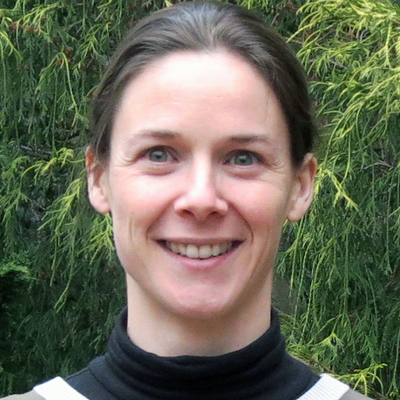Developing systems to make sense of the vast amount of information available
Natural Language Processing (NLP) underlies the ability for systems like Siri, and other talk-to-text capabilities to enable computers to derive meaning from what we say. It is a familiar experience however to feel like Siri just doesn't understand what you are trying to say. Luckily, researchers have combined computer science, artificial intelligence, and linguistics to help computers understand not only the literal meaning of a text but also the underlying implicit meaning of a text. Dr. Marie-Catherine de Marneffe, of The Ohio State University, is a linguist that utilizes computational modeling to capture what is conveyed by more than just the literal meaning of words. Her work may therefore aid NLP systems in providing text understanding comparable to what humans achieve and in addition, gain insight into how humans acquire language.
Advances achieved by Dr. de Marneffe's research have the promise of incredible impacts for language technologies. In the current era of ever growing information, having automatic systems that understand the nuances behind speech would benefit information analysts by allowing them to organize and sift through information more quickly and effectively. In fact, Dr. de Marneffe hopes to use such technology to provide a new kind of application that is radically more capable of real understanding that agencies like the NSA could capitalize upon. In addition to applications, Dr. de Marneffe's work has also established closer interactions between researchers in theoretical linguistics and in NLP thereby allowing them to successfully share resources. By leveraging the world of linguistics and computational technology, Dr. de Marneffe provides research that shows how efforts in theoretical linguistics and NLP can complement each other to develop models and to asses them.
Current research includes:
-
Targeting Implicit Meaning: Dr. de Marneffe is building automatic systems that target implicit meaning by focusing on different tasks. For example, how can we automatically retrieve that a dialogue such as "Was the movie good? It was excellent." means, "Yes, the movie was good" even though this is not explicitly stated? This research aims at understanding language to allow researchers to suitably organize language systematically.
-
Veridicality: Dr. de Marneffe is interested in how we infer meaning from a sentence. For example when one reads something or hears it in the news, how do they decide that the events described are truly reflecting what happens in the world? By better understanding the concept of veridicality, Dr. Marneffe's research may point linguists in the direction of stronger computational tools.
-
Language Acquisition: Dr. de Marneffe has combined her NLP work with understanding the foundational issues of how we process language. She has developed empirical, probabilistic models that show how our language production and comprehension rely heavily on keeping track of patterns present in what we hear. This research has principally been interested in looking at how children acquire language.
Bio
Dr. Marie-Catherine de Marneffe received her Ph.D. from Stanford University in December 2012 under the supervision of Christopher Manning. While there, she was part of the Natural Language Processing group. Her research focuses on developing computational linguistic methods that capture what is conveyed by language beyond the literal meaning of the words. Dr. de Marneffe recently worked on "veridicality": how do people interpret events they read about in the news, do they think such events really happen, did not happen, or are just a possibility? She has also worked on grounding meanings from Web data, and showed how such meanings can drive pragmatic inference. In addition, she has also been working on recognizing textual inference and on contradiction detection.
During her studies in classical languages and literatures, Dr. Marie-Catherine de Marneffe was fascinated by the problem of translation and she thought that the field of computational linguistics would be an interesting place to devote her talents. In addition, she found that she loved to teach and believed academia would therefore be the perfect way to continue research and teach. Now, as a professor and researcher at The Ohio State University, she has found that teaching has become an opportunity to inspire. She loves to let others discover a new world and share with them her knowledge of it. She has also found that there is wonderful reciprocity in which students learn and she does too! Dr. de Marneffe enjoys her research because the data she works with is what we use everyday, language. She finds it incredible to think about the complexity of language and how the same words can be used to communicate different things depending on the context.
In her free time, aside from research, Dr. de Marneffe spends time with her husband and two young children. In addition, she explains that the secret to maintaining balance in her life is continuing her lifelong love of dance. When she is not on the move dancing, or playing with her children, Dr. de Marneffe enjoys relaxing with a good book in her native language, French.


